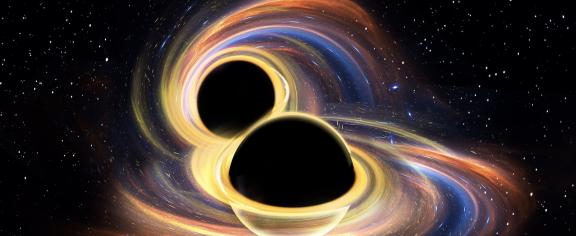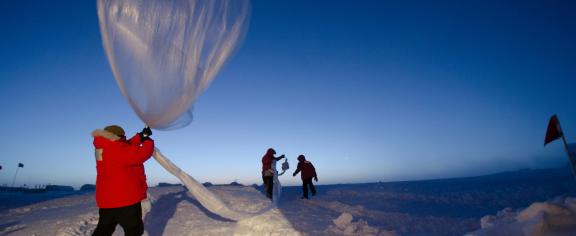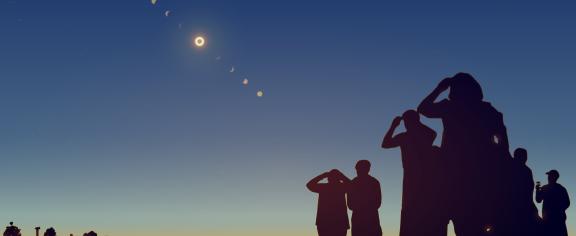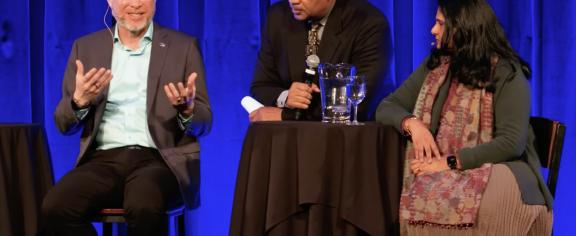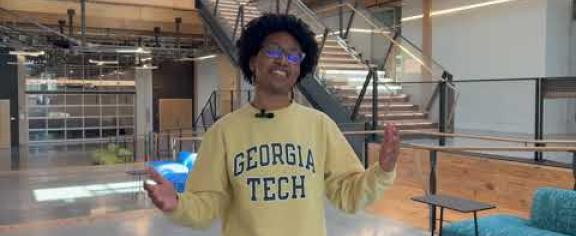2025-09-19
Wang has been awarded a NASA Space Technology Graduate Research Opportunity to develop mathematically grounded solutions for landing spacecraft.
2025-07-15
Before merging, both black holes were spinning exceptionally fast, and their masses fell into a range that should be very rare — or impossible.
2025-01-22
A Georgia Tech-led review paper recently published in Nature Reviews Physics is exploring the ways machine learning is revolutionizing the field of climate physics — and the role human scientists might play.
2024-04-05
Through detailed auditory descriptions and immersive virtual environments, the Sonification Lab facilitates accessibility to the wonders of the universe for all, regardless of visual ability.
2024-04-04
Sparked by a professor’s interest, 55 students from the School of Physics will travel to Illinois to enter the path of totality for the April 8 total solar eclipse.
2024-04-03
Wise, a professor in the School of Physics and director of the Center for Relativistic Astrophysics, spoke to how the James Webb Space Telescope has impacted astrophysics and our understanding of the formation of black holes.
2024-04-03
Researchers at Georgia Tech have teamed up with NASA and five peer institutions to teach dog-like robots to navigate craters of the Moon and other challenging planetary surfaces.
2024-04-02
While outside of the path of totality, the Georgia Tech community can still take part in the historic April total solar eclipse.
2024-02-25
The campus community is invited to participate in a week of events that increase awareness of and encourage actions that advance the 17 United Nations Sustainable Development Goals.
2023-11-16
School of Earth and Atmospheric Sciences researchers find dangerous sulfates are formed, and their particles get bigger, within the plumes of pollution belching from coal-fired power plants.

